How the Cop28 climate conference became the new Davos
As 104,000 delegates descend on the desert in Dubai, the eco talks are increasingly being overshadowed by big business deals and celebrity A-listers.
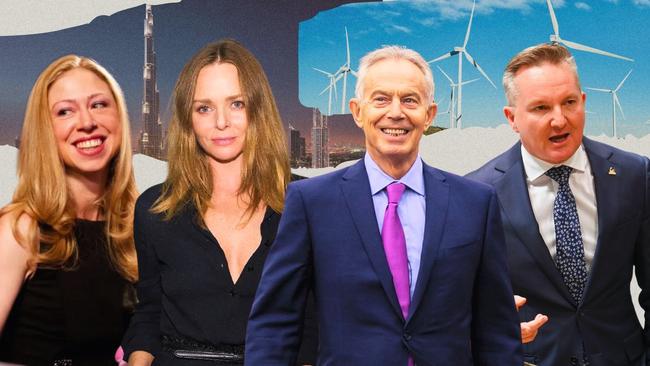
On the edge of the Arabian peninsula, where the desert meets The Gulf, an architect and a chemical engineer are trying to sell sand. This is not normal sand, however; this is taken from Saudi Arabia, roughened up in a lab and sold for use in concrete.
Towering above us in Dubai is the world’s tallest building, the 163-storey Burj Khalifa. Its concrete was made from sand imported from Australia, said Jorge Gascon, a professor of chemical engineering. “Using local sand allows us to reduce carbon emissions by close to 60 per cent.”
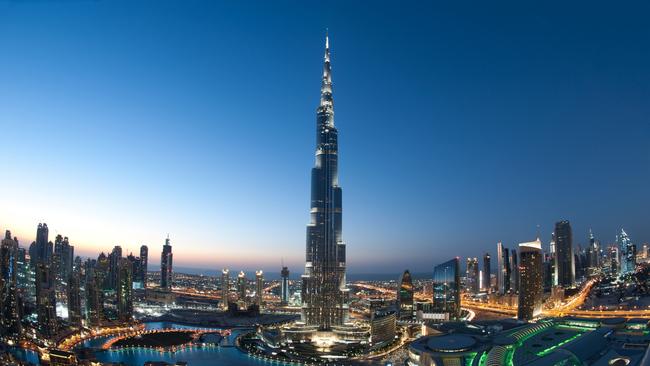
Unrefined desert sand is simply not right for making concrete. The construction industry requires “sharp sand” taken from rivers or beaches – the desert variety is too smooth. But Gascon, working with the architect William McDonough, has worked out how to sharpen desert sand so that it can be used for buildings. Their firm, ClimateCrete, is launching at the Cop28 UN climate conference in Dubai and is looking for customers – and it is not alone.
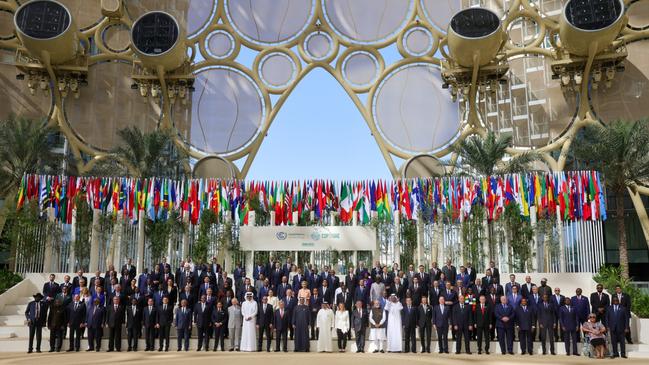
This is, by some distance, the biggest climate conference ever held, with more than 100,000 attendees. And most of the registered delegates are here to do business. Some of the world’s biggest companies – Google, Microsoft, Bank of America – are here in force. Walking between their mammoth trade stands and meeting clients in the bars and restaurants of the city, entrepreneurs seek out investors for their start-ups. In the past, many attendees at these events carried either a diplomatic passport or a protest banner. Now they carry a chequebook.
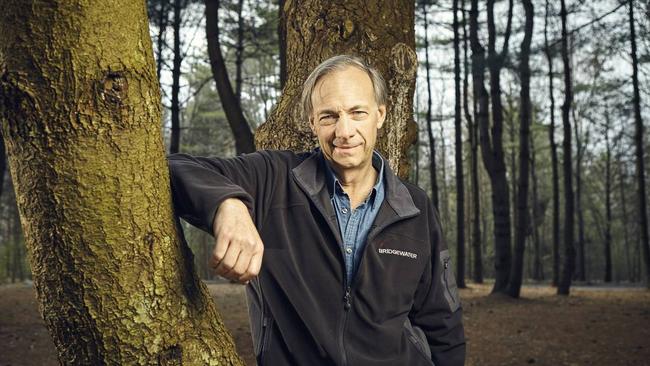
Amid the lights of Dubai harbour on Friday night, the American billionaire Ray Dalio, founder of the world’s biggest hedge fund, was serving vegan canapes and champagne on board his yacht, OceanX. His event was in support of 1,000 Ocean Start-ups, a coalition of small companies investing in marine biodiversity. Another supporter is Prince Albert II of Monaco, who held his own reception on Saturday.
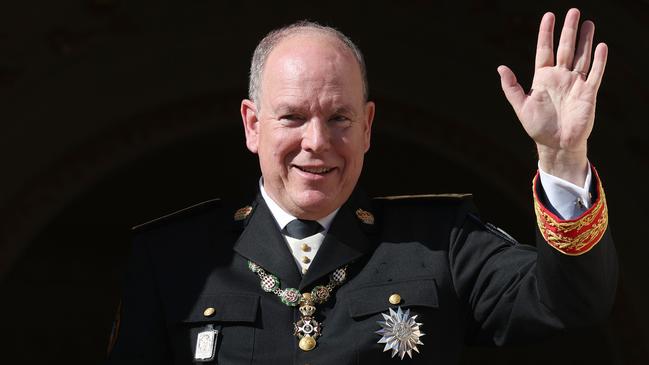
Deals are being done by the day. Rishi Sunak, who spent more time in the air on his 11-hour visit to Dubai than he did on the ground, announced an £11 billion link-up between German energy giant RWE and UAE renewables company Masdar to fund the Dogger Bank wind farm off the Yorkshire coast. And Cop28 president Sultan Al Jaber announced the creation of a $US30 billion climate investment company backed by the UAE government and asset managers Blackrock, Brookfield and TPG.
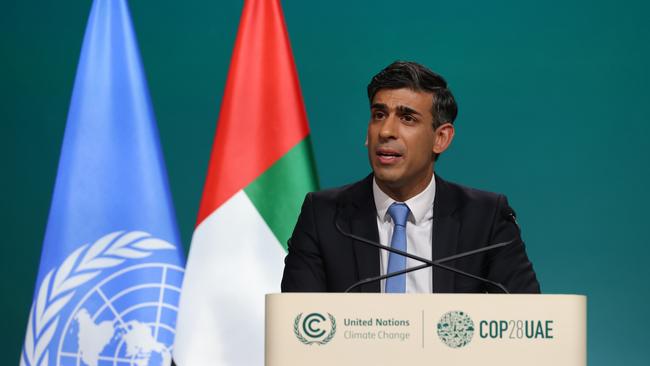
This annual event – which started in Berlin in 1995 – has mushroomed. A decade ago the 2013 Cop ("conference of the parties") was attended by just 8,000 people. The much-trumpeted Cop26, held two years ago in Glasgow, had 40,000. This year the figure is 104,000.
Tom Rivett-Carnac, one of the architects of the historic Paris deal secured at Cop21 in 2015, said this transformation was inevitable. “Cop was designed to reach a global agreement on climate change – which we did in Paris. And then it took a few years to sort out the rules, which we did in Glasgow.”
But while the diplomatic process continues – this year’s aim is to agree to tripling renewables by 2030 – the progress in the negotiating rooms is glacial, and the gains secured by civil servants are incremental.
As one wind energy boss put it: “Governments set these targets, but [we are the one]who will deliver it.”
Politics is still important at these events. John Kerry, Joe Biden’s climate envoy, yesterday (Saturday) committed the US to phasing out coal power for the first time. The US has the world’s third largest coal-fired capacity.
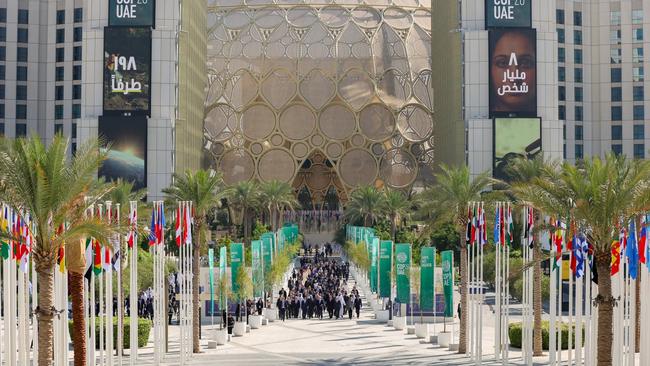
The Czech Republic, Cyprus, Dominican Republic, Iceland, Kosovo and Norway made similar coal commitments yesterday (Saturday), which campaigners said would put pressure on China and India – the world’s biggest coal burners – to eventually follow suit. Increasingly it is small groups of countries – “coalitions of the willing” – that make a difference at these summits, rather than the formal central negotiations requiring unanimous agreement.
Rivett-Carnac added: “The talks remain important – but as Cop has grown they have less and less consequence as a proportion of the whole. CEOs are now coming to Cop annually. They have to, because everyone else is coming. It has ballooned.”
For many companies, Cop has replaced the annual World Economic Forum held at Davos as the place to do business – and not just around climate. One major asset management firm is said to be considering giving up its membership of the forum. “Why go to Davos in January when you’ve seen everyone … at Cop in December?” said one delegate.
Where business goes, politicians follow. Sunak was joined in Dubai by his predecessors Lord Cameron of Chipping Norton, now his foreign secretary, Theresa May, representing the Aldersgate Group, and Sir Tony Blair, who advises the UAE government. Scottish first minister Humza Yousaf was accompanied by firms looking to attract investment. Sir Keir Starmer, who held a round table with investors including Lloyds and Siemens, said he would work “hand in glove” with business to achieve an energy transition.
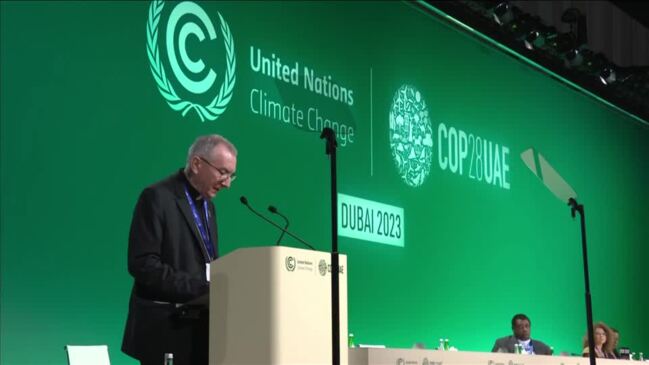
King Charles, who gave the opening speech, hosted a reception for his Sustainable Markets Initiative – a group that has 300 chief executives as its members. “CEOs were clamouring to say hello,” said Trevor Neilson, an American entrepreneur and philanthropist. “I’ve spent a lot of time with Bono and it reminded me of that – His Majesty is a rock star here.”
The royal event was the hottest ticket in Dubai on Thursday night, but business leaders also rubbed shoulders with politicians at parties held across the city. Cameron and former environment secretary Lord Goldsmith attended a “nightcap” hosted by the PR agency Freuds at an art gallery. On Friday John Kerry addressed a Wall Street Journal reception at a yacht club, while Stella McCartney co-hosted a party with Bank of America chief executive Brian Moynihan. Last night (Saturday), Time Magazine held a party on the 122nd floor of the Burj Khalifa, attended by Chelsea Clinton, who was promoting the fight against malaria.
Deal-makers of all stripes descend on the desert
But amid the glamour, the UAE organisers faced accusations that they were using the event to do their own deals on oil and gas. Jaber, as well as being Cop28 president and a minister in the UAE government, is chief executive of the Abu Dhabi National Oil Company; leaked documents obtained by the BBC suggested he had been primed to use preparatory meetings to explore fossil-fuel deals in countries including Mozambique and Canada.
In a press conference to launch the summit, Al Jaber said “these allegations are false”, insisting that he was using the event to marshal oil producers towards a decarbonised future.
Some observers are uncomfortable with a big oil producer hosting a climate conference. Ann Harrison of Amnesty International said: “It looks ever more like a fox is guarding the hen house.”
But others point out that Al Jaber is also chairman of Masdar – a huge renewables firm. The UAE’s wealth is built on oil and it is home to 10 per cent of the world’s oil reserves, but it has also prioritised diversification – in renewables, AI, property and financial services – with significant success. Last year the UAE economy as a whole grew 3.7 per cent. But the non-oil economy surpassed this, growing by 5.9 per cent.
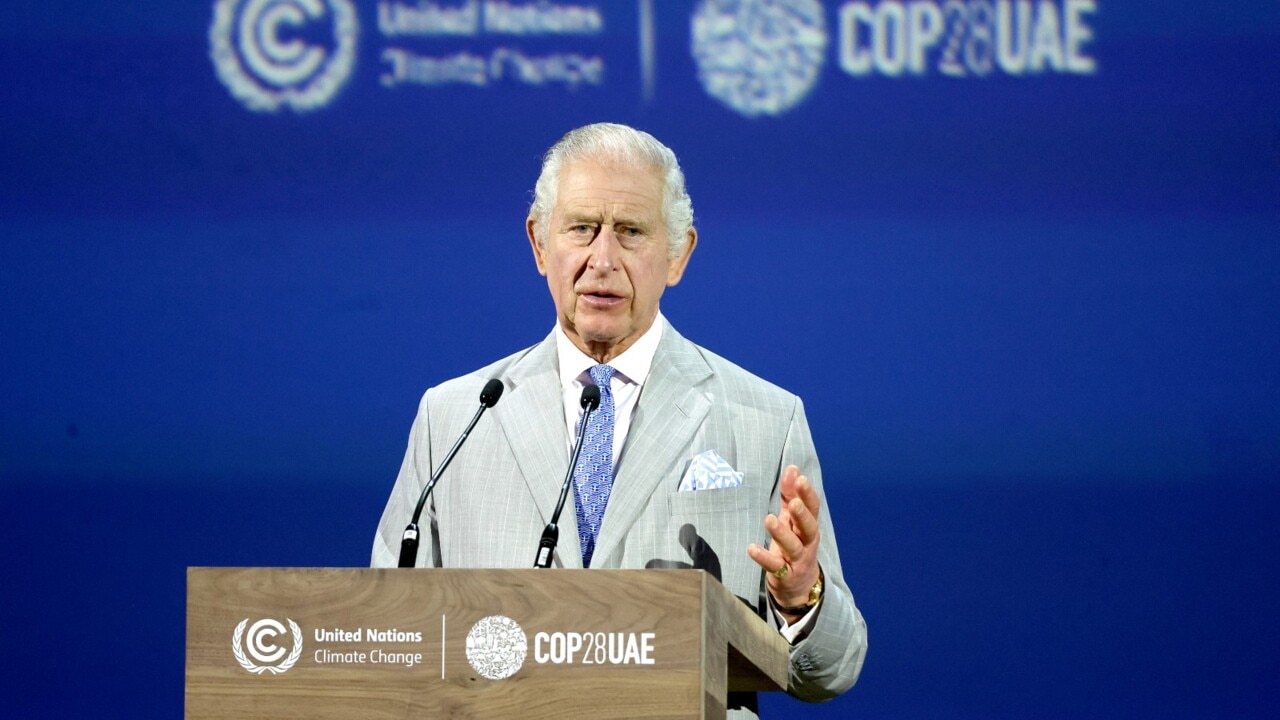
Mohamed Jameel Al Ramahi, chief executive of Masdar, defended the country’s record on clean fuels. “The UAE is home to three of the largest single-site solar projects in the world,” he said. “We are helping [clean fuels] to be realised all around the world, too.”
Greg Jackson, chief executive of British energy supplier Octopus Energy, is doing his own deals at the summit. Last week he announced a partnership with a charity co-founded by the Hollywood star Idris Elba to build Sierra Leone’s first wind farm.
On Wednesday, Octopus will announce a pilot scheme to roll out its customer service software, Kraken, to Taqa – the Abu Dhabi National Energy Company. The two companies are already co-investors on Xlinks, a scheme to bring electricity to the UK from Morocco via an undersea cable, and are working on a joint venture to establish a new innovation centre in Abu Dhabi.
Octopus has installed five wind turbines at the Cop28 conference centre. Jackson said doing business in Dubai was seamless. “I’m here to show people how quickly and cheaply we can build renewables. We put those five wind turbines up in eight weeks. At that speed it is almost try-before-you-buy. We could do that in the UK if we were allowed.”
Jackson said the UAE was a country of contradictions – a major oil producer, but also a supporter of clean energy. “Nobody should be misty-eyed about countries and companies and their objectives,” he said.
“But there is something interestingly different about the UAE. They have established companies that are driving things forward. Masdar’s objective is to establish 100 gigawatts of renewables by 2030 – that’s bigger than the UK’s whole electricity system. That’s genuine leadership. The UAE was built on getting oil out of the ground, but they have also worked out what comes next.”

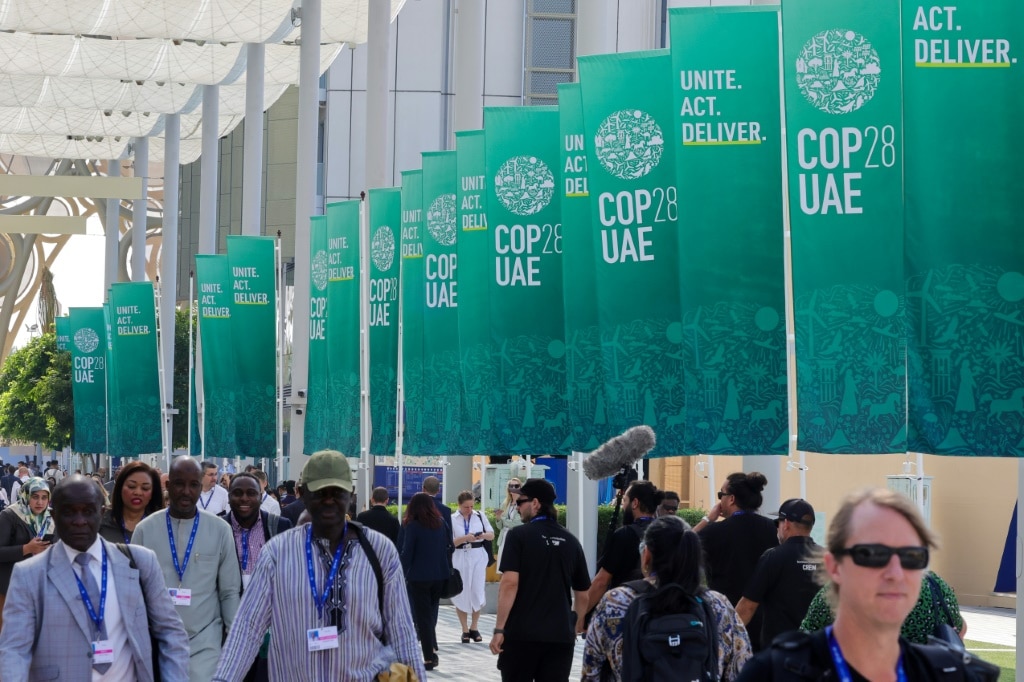

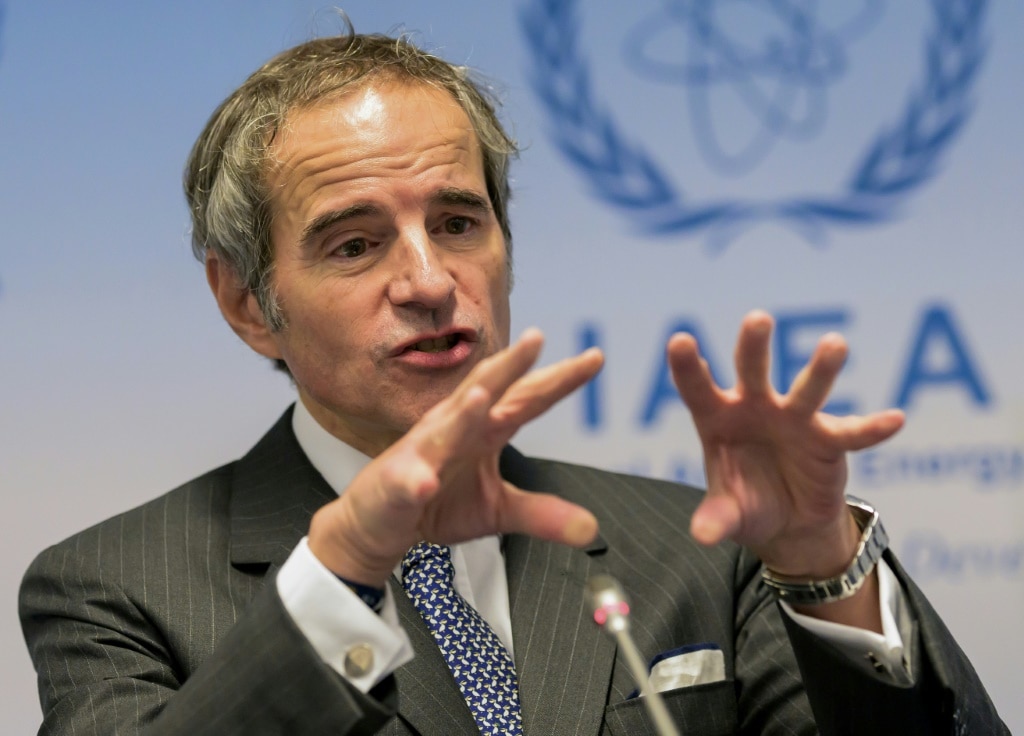
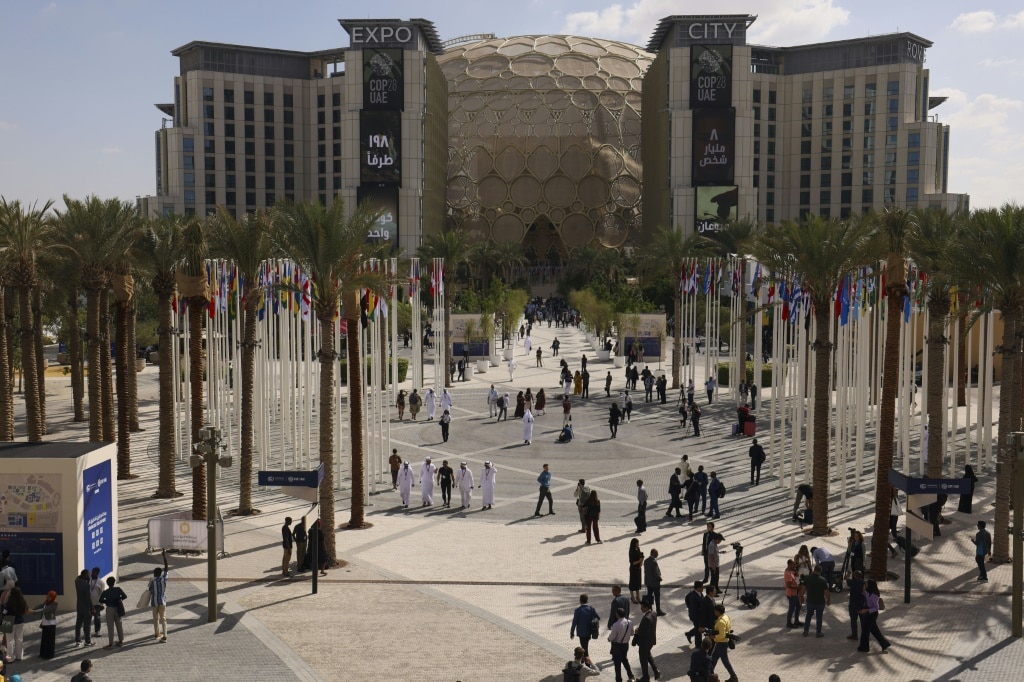
To join the conversation, please log in. Don't have an account? Register
Join the conversation, you are commenting as Logout